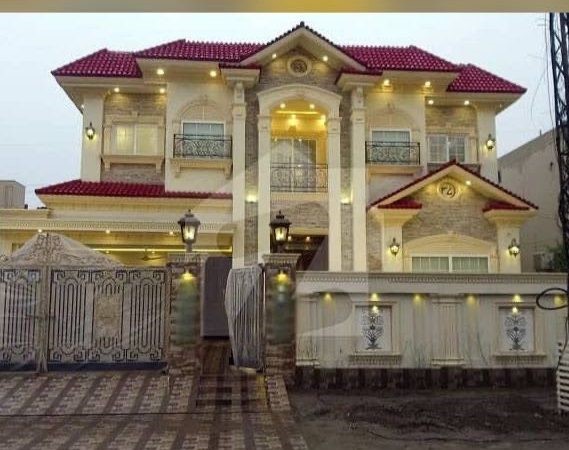
The arrival of the year 2020 has thrown the entire globe into a pandemic, with the certainty of an uncertain future. From the most developed to the poorest, no country has been spared, with casualties ranging in the hundreds of thousands and documented cases in the millions. Pre-COVID-19 and post-COVID-19 are defining terms in the same way as pre-WWII and post-WWII are. Still, the situation was predicted to recover in 2020, led by the large emerging nations, with a return to potential world growth by 2021. All bets are off, and all 2020 estimates are being revised downward, thanks to Covid-19 and its disastrous repercussions. The Covid-19 virus is predicted to infect underdeveloped economies like Pakistan through three transmission pathways. Know about development in Park View City.
To begin with, it will have an impact on aggregate demand as a result of the virus’s containment measures. Already experiencing a recession in the economy, the situation will deteriorate further due to the coming lockdown, which would result in higher unemployment (up to 8.1 per cent, with 12.3 million to 18.53 million predicted layoffs). These layoffs will undoubtedly reduce these households’ disposable income, causing a demand shock throughout the economy. This is then compounded by the predicted drop in remittances, which are expected to drop by 10% to 50%, depending on the virus’s spread and the steps taken to contain it. These reductions in disposable income are predicted to reduce aggregate demand, with a drop in private consumption spending of 4 to 8% expected, altering the country’s economic outlook and the lifestyle of its people.
The Housing Disparity
Pakistan is experiencing a housing crisis. It will take an estimated 10 million additional homes to meet the demand, which will increase by 400,000 units per year. A rapidly growing population (now over 208 million people) and increasing urbanization drive demand. The rising cost of land and construction materials Pakistan’s fragmented land record, weak foreclosure laws, inadequate public-private partnerships, a lack of long-term investment, and low levels of mortgage credit are all contributing to the country’s housing crisis. Despite a strong demand for home loans, particularly among low-income families, most financial institutions limit their mortgage products to the high-income segment in a few major cities due to a lack of risk appetite, legislative obstacles, long-term finance, and institutional capability. According to industry insiders, changing this might result in a rise in real estate investment and the creation of thousands of construction jobs.
The Real Estate Industry and Our Future
People’s general desire to protect their future motivates them to invest in Pakistan’s real estate market. However, due to the previous government’s high taxation on the real estate industry, investment trends in real estate have diminished, resulting in the sector’s ultimate obliteration. Even as foreign direct investment diminishes and infrastructure funding remains tight, Pakistan’s real estate market contributes significantly to economic growth. According to the World Bank, the real estate sector accounts for 60 to 70 percent of the country’s wealth, or USD 300 to USD 400 billion. Read more about Silver City Islamabad.
Real Estate in the Future
Aside from the government’s decisions, there were high hopes for this sector to grow substantially in 2020. This time, however, the problem is significantly more serious, and it can cause a real estate market meltdown in all major cities, including Islamabad, Rawalpindi, Lahore, and Karachi. Increasing taxes on a sector that has the potential to grow and contribute to economic growth, such as real estate, can be counterproductive. First, the government should incentivize the industry to broaden the tax base. The government should formulate an updated real estate policy in light of the current scenario.
Conclusion
In contrast to the present cumbersome paperwork requirements and shaky legal assistance, the government must create a well-structured, transparent, and centralized system for investors. Following the industry’s designation, the government should establish an industry regulator, adopt land purchase and ownership standards, and register all property consultants and projects.
Author Bio
Ramza Zahra is a Karachi-based freelance content writer who uses her life experiences and curious nature to research and pen it down and make a living. Currently, she is working with Sigma Properties as an Snr. Content Writer.
